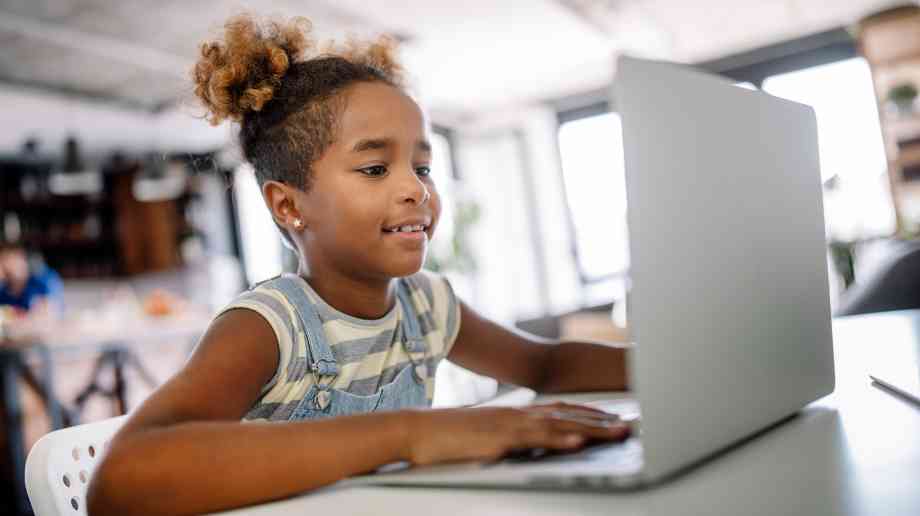
Keeping students safe whilst working at home
Mark Bentley, safeguarding and cybersecurity manager at the charitable trust LGfL – the National Grid for Learning, reviews remote learning and keeping children safe whilst working online.
Twenty-twenty has been a year of challenge and change. With remote learning becoming mainstream and students spending more and more time online, the need to keep them safe has become ever more pressing. This has been recognised in the Government’s statutory guide for schools and colleges Keeping Children Safe in Education 2020, with new references to online safety in the home.
More time spent online at home will by nature increase exposure to online harms ranging from bullying to child sexual and criminal exploitation. It’s important when remote learning is implemented during bubble/school closures, the same principles of safeguarding, online safety and behaviour apply. Most schools will not need to make major changes to policy documents; however, leaders should review policies, remind stakeholders of agreements and responsibilities, and identify and update any that need reinforcing due to new online procedures and activities.
There are key things to remember when using live streaming and other remote teaching technologies. Although these are all great teaching and learning tools, it’s important to take precautions to keep pupils safe and protect staff from allegations of impropriety.
Precautions when conducting remote learning
Ensure that only school-registered and approved accounts are used and that staff and pupils understand the principles of the acceptable-use agreements they have signed.
Policies should reflect the realities of remote learning and the safeguarding reporting process should still function when staff or students aren’t in school.
Ensure your Data Protection Officer is happy with any new technologies and that GDPR is covered.
It is important to ensure no pupils are excluded - all pupils should have access to the internet, a device and a quiet place to learn, and that teachers are aware of vulnerable pupils with SEND and CP needs.
Where possible, schools may wish to insist that teachers only stream with another member staff in the ‘room’ – as a minimum, other colleagues must always be aware when live sessions are in progress.
Schools should also ensure teachers do not engage in any one-to-one sessions unless pre-approved by SLTs, and staff keep a log of details from each session - what, when, with whom and anything that went wrong.
Staff should also be aware that pupils may secretly record them, and there should be protocols for pupils to share ideas, ask questions and receive support are set up.
If staff are unsure, or there is any uncertainty about the safety or reliability of a system, it would be better not to use it.
Advice to give parents
Parents are also going to worry about extra screen time and the risks that it presents. Here is some advice for supporting parents and a list of recommended sites that are informative and easily accessible:
Educate parents about quality screen time, rather than the amount of time spent online: spending time creating a film or story is not the same as scrolling through social media or Skyping friends and family.
The Children’s Commissioner’s ‘Digital Five a Day’ is a great resource to help parents understand and plan or review their child’s time online.
Inform them about the safety settings that can be used on home internet, mobile devices, consoles, apps or games. Internet Matters - www.internetmatters.org has hundreds of guides to age appropriate parental controls
Encourage parents to be involved in their children’s online ‘life’ so they can monitor what their child is doing and with whom and if they are accessing age appropriate apps and games. Some great sites for parent guides including reviews and recommendations for safe apps and video platforms are Common Sense Media - www.commonsensemedia.org and the NSPCC’s NetAware - www.net-aware.org.uk/
The UK Government’s National Cyber Security Centre (NCSC) has created CyberAware (https://www.ncsc.gov.uk/cyberaware/home#section_2) - a simple and informative six step system to support online safety that you can share with parents and pupils of all ages. This includes creating a separate password for your email; creating a strong password using three random words; saving your passwords in your browser, turning on two-factor authentication; updating your devices; and turning on backup.
Parents may feel overwhelmed by the number of online safety issues; one overall guide for parents and pupils is that when online pupils should behave the same way as they do offline but realise that other people do not. Parents should remind their children to be good friends and ask for help if they are worried or if someone is being mean, not do anything inappropriate on camera, for example undress, and immediately report anyone who suggests that they do.
Support from the school is very important; parents should feel free to ask if they are unsure about their child's online safety.
Don’t forget too that the new subject Relationships, Sex and Health Education (RSHE) has 66 mentions of life online, so this new home of online safety is a great place to start preparing young people for the risks and opportunities presented by the online world. At LGfL we offer training on teaching online safety through RSHE which is free to all schools, so why not send your RSHE coordinator to find out more https://safetraining.lgfl.net?
Education is of course a vital piece of the jigsaw but can’t cover all bases. That’s why legislation and regulation are important. The Government’s Online Harms Bill will hopefully finally come into force in 2021, with great new initiatives such a duty of care for social media providers.
What’s more, we recommend you take the opportunity to check that your school’s filtering provider offers ‘appropriate filtering’ and has filed a submission with the UK Safer Internet Centre to say how they do this. Keeping Children Safe in Education 2020 makes new mentions of keeping children safe in the home, so why not have a look at our offer of free home filtering for the next six months to cover the current period of uncertainty when you may be sending devices home to facilitate remote learning to ensure that your students are safe when learning at home.
Latest News
31/10/2025 - 10:12
A growing number of UK children are now eligible for Free School Meals (FSM), yet most still aren’t taking advantage of them on a daily basis, new research reveals.
30/10/2025 - 01:28
In the wake of the Raac crisis, the DfE spent £5 million on research into the condition of school buildings, which is due to conclude in spring 2026.
30/10/2025 - 01:09
Malmesbury Primary School in Wiltshire has submitted plans for a major expansion, funded by entrepreneur James Dyson.
30/10/2025 - 00:55
Monday's Every Pair Tells a Story campaign to protest to highlight the national crisis in SEND provision.
29/10/2025 - 09:19
Estimated data from the Department for Education reveals that 470,000 pupils under 16s use local authority funded transport to get to school.







